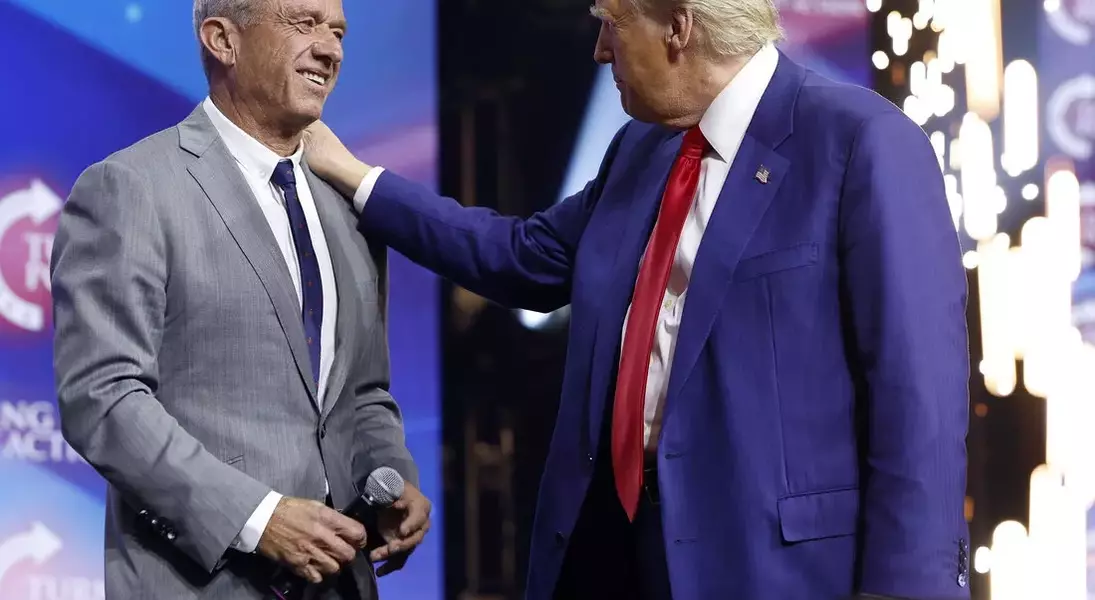
In a surprising turn of events, President-elect Donald Trump has named Robert F. Kennedy Jr. as his nominee to lead the Department of Health and Human Services (HHS). This announcement comes after Trump's campaign promise to allow Kennedy significant influence over health policy. Kennedy, known for his outspoken views on various health-related topics, has long advocated for substantial changes in healthcare policies. However, some of his opinions have raised concerns within the scientific community, particularly regarding scientifically discredited claims about vaccines, fluoride, and HIV. The nomination signals a potential shift in how health policies may be shaped under the new administration.
Kennedy's nomination marks a pivotal moment in U.S. health policy. During the campaign, Trump hinted at giving Kennedy considerable leeway in shaping health initiatives. Kennedy, who has been vocal about his desire to reform health and healthcare policies, now stands on the verge of obtaining a platform to enact these changes. Notably, he has championed several controversial positions that challenge mainstream medical consensus. For instance, Kennedy has publicly expressed skepticism about the safety of vaccines, arguing they can cause autism—a claim widely debunked by extensive scientific research. Similarly, he has questioned the benefits of fluoridated water, suggesting it could be harmful to public health. These views have sparked debates among experts and policymakers alike.
The potential impact of Kennedy's appointment extends beyond just policy reforms. His stance on critical health issues, such as the relationship between vaccines and autism, contradicts established scientific evidence. This divergence from accepted medical knowledge has led to apprehension among health professionals. Furthermore, Kennedy's doubts about the link between HIV and AIDS have also drawn criticism. Despite overwhelming scientific consensus supporting this connection, Kennedy's alternative theories have gained traction among certain groups. As he prepares to take on this influential role, questions arise about how his unconventional views will influence the direction of national health policies.
The nomination of Robert F. Kennedy Jr. to head the Department of Health and Human Services reflects a significant development in the incoming administration's approach to health matters. With his history of advocating for radical changes in healthcare, Kennedy's selection suggests a departure from conventional policy frameworks. While supporters see this as an opportunity to rethink existing practices, critics worry about the implications of embracing unverified health claims. Ultimately, this nomination sets the stage for a contentious debate on the future of health policy in the United States.
